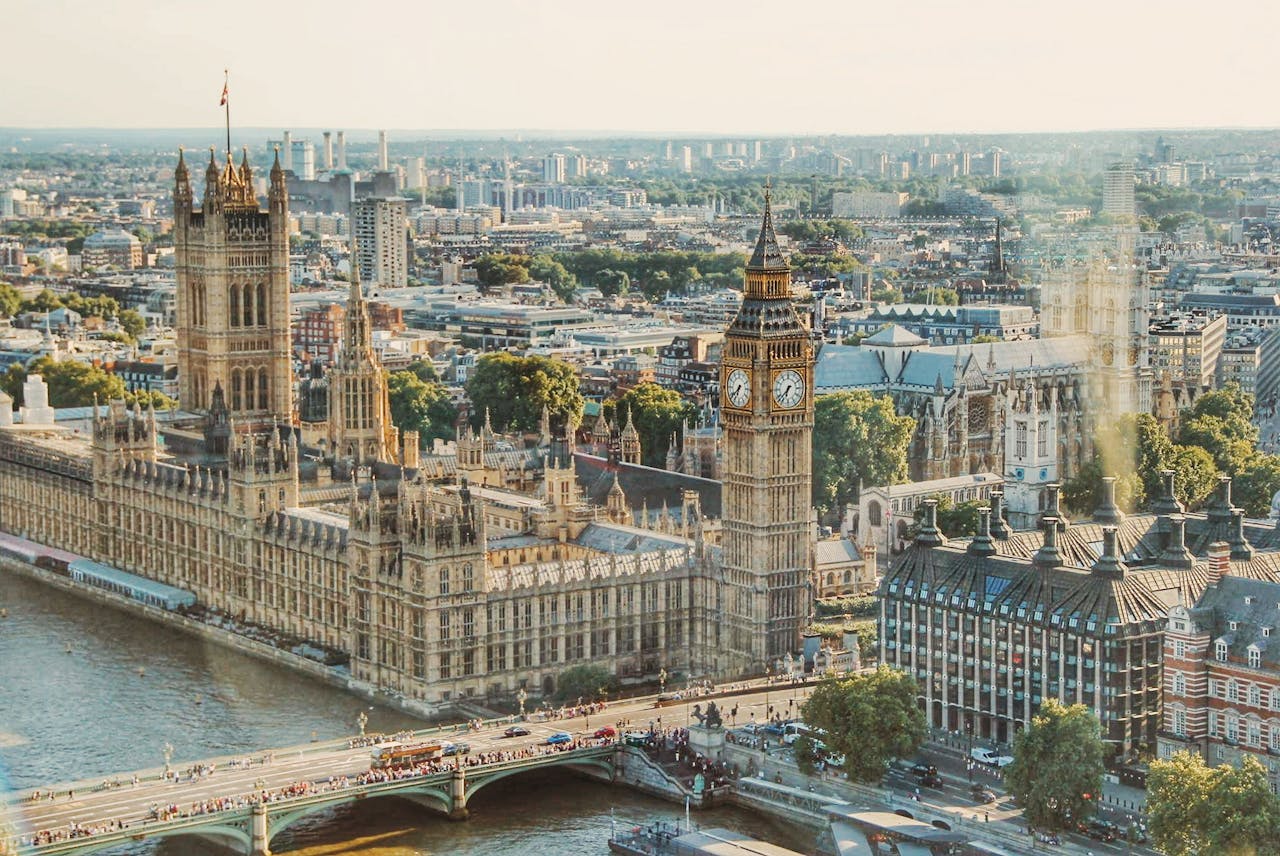
General Election 2024: Which party has what it takes to make Britain great again?
With two weeks to go to the General Election, I provide assessment as to which parties manifesto delivers what is needed for businesses and the economy.
With the cost-of-living crisis, the economy teetering on the edge of recession, a range of public services crises and the highest national debt levels since the 2nd World War, we need radical ideas implemented to make a change. Below are the key measures each party intends to take to fix this.
Conservatives
- £17bn tax cuts and 2p drop in NI promised in their manifesto to help stimulate spending in the economy and growth for business.
- Policy of stimulus to landlords, with a two-year temporary relief on capital gains tax should they sell to tenants. This should help stimulate home ownership and multiplier effects in a variety of associated industries. There is also the continuation of help to buy equity loan scheme, giving first-time buyers a loan of up to 20% of the cost of a home, allowing them to buy a with just 5% deposit.
- Aside from the above two measures there are proposed initiatives to toughen sanctions on unemployment benefit and childcare provision for nine months to help people get back to work, but not a great deal more!
Labour
- Reassessing Britain’s relationship with Europe and the barriers to trade.
- Decision to keep tax levels frozen, however many say this is a tax rise by the back door, making no commitment to undo it.
- Help of a mortgage guarantee scheme.
- Wealth creation.
- Shadow Chancellor recent comments
- “offering a different approach; a pro-growth, pro-business agenda that is laser focused on unlocking investment, removing barriers to investment and supporting innovation”.
- Unleashing private investment also means removing institutional barriers. We must do much better at unlocking the trillions of pounds of private sector capital in pension funds, to support business investment.
- Support commercialisation in our world class universities.
- Package of green energy measures including a new state-owned energy company Great British Energy, a wealth fund to pay for decarbonisation of heavy industry and restore 2030 date for ban of petrol and diesel cars.
- Fairer business rates system with more rates equalisation, for example on-line retailer warehouses.
- Regulatory Innovation Office to speed up approval times for new innovative products such as medical devices.
- National data library to provide better access to public sector data researchers & data centres to help speed up planning approvals.
Liberal Democrats
- Increase capital gains tax from 28% to 40% on gains over £50,000 & 45% on gains over £100,000. Other than raising tax revenues this policy will be of no help and will reduce working capital in the economy. There are also other proposed tax hikes for banks, social media firms, 4% tax on FTSE 100 share buyback schemes.
- Intent to “repair the broken relationship with Europe, which acts as a brake on the UK economy”. One could assume this implies closer reintegration with Europe which could have economic benefits from deregulation of barriers to trade and free movement & migration of labour between the UK & EU.
- Investment in green infrastructure, innovation and skills to boost economic growth, however no clear plan on how this would be achieved.
- Support and expansion for British Bank to help smaller and mediums sized business, which is a good idea, given the difficulty many businesses face in acquiring finance through traditional banks.
Reform UK
- Lift the minimum profit threshold to £100k before corporation tax is effective.
- Reduce corporation tax from 25% to 20% and then to 15% from year 5.
- Abolish IR35 Rules reducing tax for self-employed and contractors.
- Lift the vat threshold to £120,000.
- Abolish business rates for high streets small and medium sized business and an online tax of 4%.
- Reform planning system to prioritise brownfield sites and infrastructure projects.
- Slash business red tape – by scrapping laws that hold back business. Whilst in principle a positive and intended move, from a legal perspective this would be commercial suicide with Europe and impact an already tarnished reputation for UK internationally.
- Lift income tax start point to £20,000 per year and higher rate tax from £70,000 earnings.
- Abolish IHT for estates under £2m and for those over a 20% tax.
- No stamp duty up to £750k, 2% from £750k and 4% over £1.5m.
- No vat on tourist tax.
So, who can we trust to deliver the best for UK PLC and its businesses?
The Liberal Democrats seem to have a good initiative in respect of the British Bank, and I would welcome Labour & Conservatives to follow this pledge as many small-medium sized business lack access to finance and funding simply due to the lack of appetite from the larger banks. Closer ties with Europe risks opening further divisions in the electorate, increased taxation will only further hamper the economy and the policy to create jobs and prosperity sound great but there is no strategy or plan to deliver!
One could give the Conservative leadership some credence for managing the ship after a series of economic shocks - Covid 19, leaving the EU, the debacle of the Liz Truss administration and the energy shock. However they cannot be forgiven for such high levels of national debt, which could have been better managed and the promise of £17bn tax cuts in the future including a further 2p reduction in NI maybe just too little, too late. For key initiatives in housing to work the government must address the minefield of planning issues, however due to conflicting opinion in the party and its supporters its aim of constructing 1.6mn new houses seems very unrealistic. Further divisions between the centre right of the party and hard right party supporters are internally dividing the Conservative Party and the commercial thinking. For example, the blanket introduction of a £38,000 migrant income requirement, restrictions on university students which will undermine our top universities, reduce skilled graduates within the UK and reduce cooperation and potential trade with key trading partners such as India.
Reform UK certainly present the electorate and business the most radical policy initiatives with around £88bn in business and personal tax cuts. Their policies would be a huge boost to business and industry and so therefore in isolation it could be considered the most attractive. However we should be wary of grand promises given we know from recent past experience as to the consequence of mis-informing the electorate such as Boris Johnson’s claims of savings for NHS after Brexit, or mismanagement by Liz Truss brief leadership. Reform UK policies have not been accurately assessed and costed as confirmed by the IFS (Institute of Fiscal Studies). If implemented the impact on for example the public services would be monumental. That said the UK has to become more competitive over time with more efficient public services, a lower taxation framework and more investment into infrastructure projects and maybe some of the policies should be considered by the major parties over time.
When it comes to Labour can we trust them not to do a u-turn on taxes, if books look worse than what they expected when they get in power! As stated in an article in the FT, a lot of individuals with private pensions are thinking should they take 25% tax free allowance now as you don’t know if Labour will tax this”. There is no detail in how they expect growth from their “green prosperity plan” & “national wealth fund”. IFS has talked about a “conspiracy of silence” over the tough tax and spending decisions facing whichever party wins and the next chancellor could be forced to increase taxes by £20bn or face deep cuts. Labour has not ruled out putting up taxes outside four key areas. Our political parties including Labour must take action to reduce national debt and not to increase it further. Starmer displayed a ruthless tendency to say what he needs to get elected – in this case a pro-business tone – while being willing to abandon his positions when circumstances change, but if as expected when he becomes leader he must also consider the national economic interest.
Due to Conservative divisions and lack of initiatives, Labour & Starmer have a real opportunity to take a lead and become a party for business & the economy, however they need to put more meat to the bone as many of their policies lack strategy and implementation plans. If they can reform the planning system, unlock capital in pension funds, introduce the green measures, speed up approval times for new innovative products such as medical devices, re-negotiate better terms within the EU with a planned EU summit shortly after taking power and allowing free movement of labour which has hampered so many businesses, combined with a radical overhaul of work & visa schemes on all foreign economic migrants, then there is a real opportunity for turning the economy and giving business and the economy opportunities and a competitive international edge.
Dominic Hayer
Chairman, British Indian Business Forum
